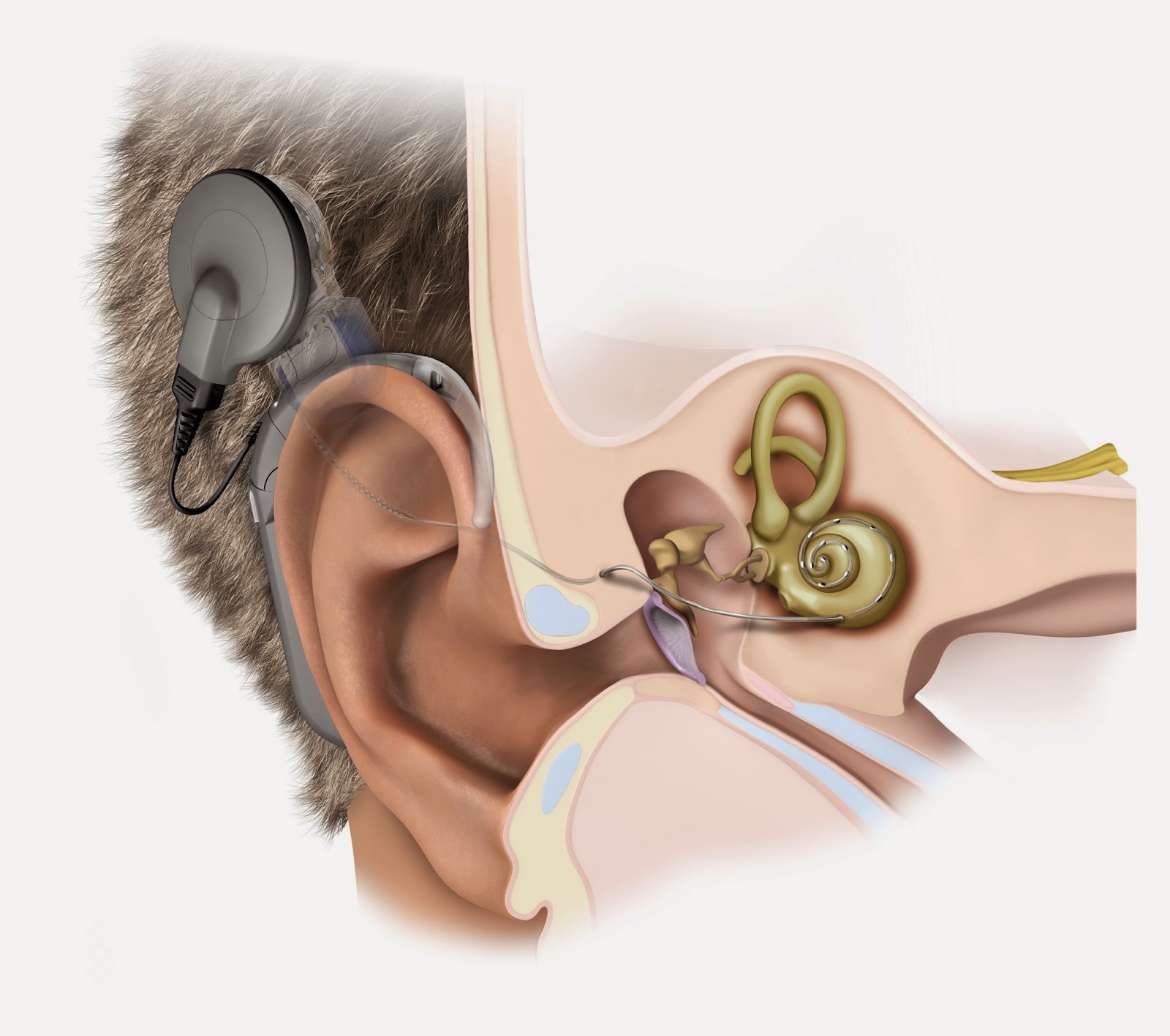People who are deaf might be able to regain most of their hearing one day, thanks to a new treatment that uses a cochlear implant to deliver genetic instructions to fix their auditory nerves, new research suggests.
In experiments on deaf guinea pigs, researchers found that the new technique, which uses cochlear implants to deliver DNA directly to the nerves, restored the animals' hearing to a near-normal level, according to the report, published today (April 23) in the journal Science Translational Medicine. Cochlear implants are electronic devices that can be surgically implanted to restore hearing in people whose deafness is caused by certain conditions.
If proven effective in humans, this experimental use of a cochlear implant to fix the nerves could offer significant improvement over current implants, the researchers said. For one, it could allow patients to hear and music.
"People with cochlear implants do well with understanding speech, but their perception of pitch can be poor, so they often miss out on the joy of music," study researcher Gary Housley, an animal physiologist at the University of New South Wales in Australia, said in a statement.
Better implants
Hearing loss usually results from the loss of hair cells in a snail-shaped region of the inner ear called the cochlea, which converts acoustic vibrations into nerve signals that the brain can interpret as sounds. Cochlear implants have been used since the 1970s to take over the function of hair cells, but the devices can't completely restore a person's hearing to normal.
Researchers have long known that delivering chemicals called neurotrophins, which are crucial to nerve function and survival, to the cochlea can help nerve endings regenerate. But so far, there hasn't been a safe, effective way to get these chemicals into the cochlea cells.
In the new study, the researchers implanted guinea pigs with cochlear implants that used pulses of electricity to place DNA snippets close enough to the nerves that they could take up the DNA and start producing the chemicals. (In contrast, traditional gene therapy that uses a virus to deliver genetic material to the cells has been less successful.)
The results showed that the guinea-pig nerve cells used the DNA to produce their own neurotrophins, which helped the nerves regenerate.
Dramatic hearing boost
The researchers then tested the guinea pigs' hearing using a method commonly used to test the hearing of newborn babies. The researchers placed electrodes on the guinea pigs' heads to measure cochlear nerve responses to sounds.
The results were dramatic: Animals that had been almost completely deaf were able to hear at near-normal levels.
Source: livescience
In experiments on deaf guinea pigs, researchers found that the new technique, which uses cochlear implants to deliver DNA directly to the nerves, restored the animals' hearing to a near-normal level, according to the report, published today (April 23) in the journal Science Translational Medicine. Cochlear implants are electronic devices that can be surgically implanted to restore hearing in people whose deafness is caused by certain conditions.
If proven effective in humans, this experimental use of a cochlear implant to fix the nerves could offer significant improvement over current implants, the researchers said. For one, it could allow patients to hear and music.
"People with cochlear implants do well with understanding speech, but their perception of pitch can be poor, so they often miss out on the joy of music," study researcher Gary Housley, an animal physiologist at the University of New South Wales in Australia, said in a statement.
Better implants
Hearing loss usually results from the loss of hair cells in a snail-shaped region of the inner ear called the cochlea, which converts acoustic vibrations into nerve signals that the brain can interpret as sounds. Cochlear implants have been used since the 1970s to take over the function of hair cells, but the devices can't completely restore a person's hearing to normal.
Researchers have long known that delivering chemicals called neurotrophins, which are crucial to nerve function and survival, to the cochlea can help nerve endings regenerate. But so far, there hasn't been a safe, effective way to get these chemicals into the cochlea cells.
In the new study, the researchers implanted guinea pigs with cochlear implants that used pulses of electricity to place DNA snippets close enough to the nerves that they could take up the DNA and start producing the chemicals. (In contrast, traditional gene therapy that uses a virus to deliver genetic material to the cells has been less successful.)
The results showed that the guinea-pig nerve cells used the DNA to produce their own neurotrophins, which helped the nerves regenerate.
Dramatic hearing boost
The researchers then tested the guinea pigs' hearing using a method commonly used to test the hearing of newborn babies. The researchers placed electrodes on the guinea pigs' heads to measure cochlear nerve responses to sounds.
The results were dramatic: Animals that had been almost completely deaf were able to hear at near-normal levels.
Source: livescience

No comments:
Post a Comment